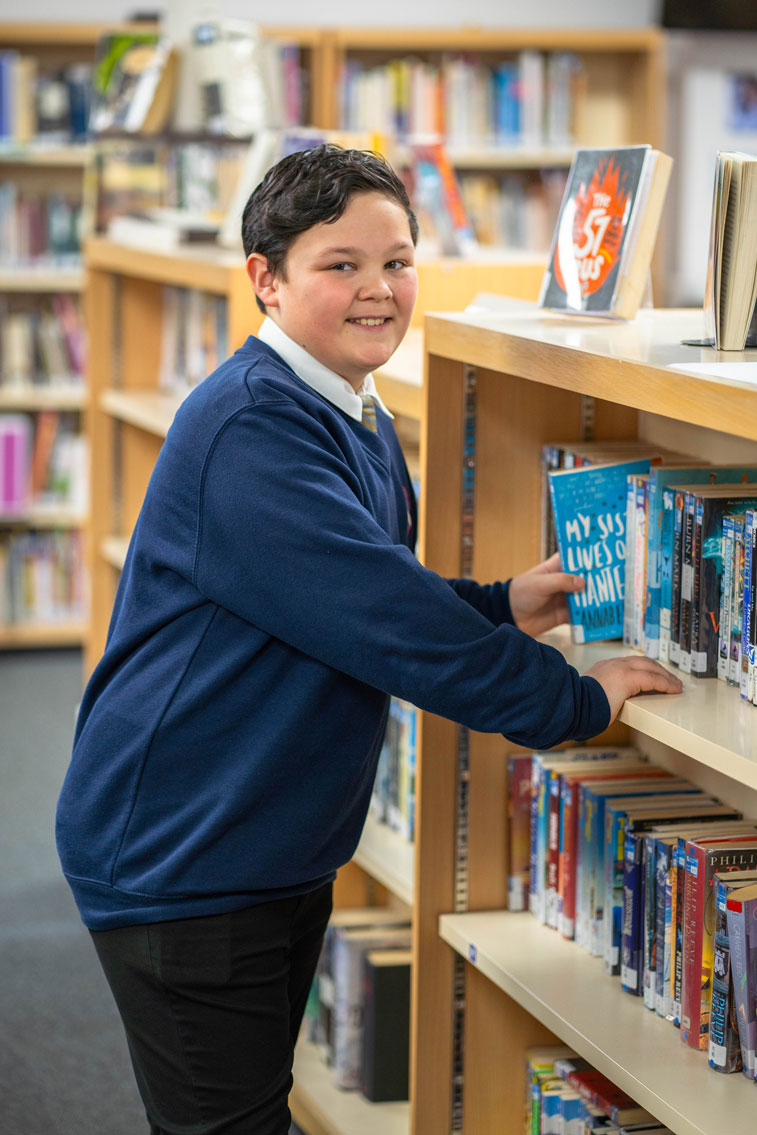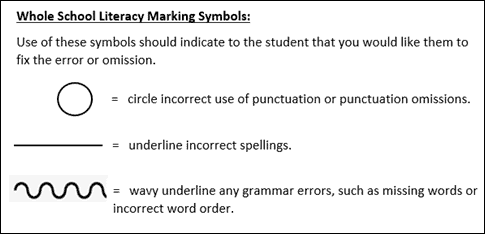Upcoming School Events
School Prospectus
Latest News
Literacy Strategy
‘Young people who leave school without good literacy skills are held back at every stage of life. Their outcomes are poorer on almost every measure, from health and wellbeing, to employment and finance.’ (2020, Education Endowment Foundation.)
Our library is stocked with a range of titles to encourage all students to develop a passion for literature. We are focused on promoting diversity and accessibility within our library, and do so through our Accelerated Reader Programme, Buddy Reading Programme and our after-school Book Clubs. We want everyone to be able to enjoy reading, so have made sure to stock titles across reading ages, genre, accessibility and media. In the library, we always listen to suggested titles by students and do our best to order any books of interest. We also make sure to include our differently abled students, and are currently working on stocking more bilingual books, as well as setting up an online system for our Visually Impaired students.
The spelling, grammar and punctuation work completed during these sessions allows for: ‘Students to consolidate and build on their knowledge of grammar and vocabulary through extending and applying the grammatical knowledge set out in English Appendix 2 to the key stage 1 and 2 programmes of study’. (KS3 NATIONAL CURRICULUM). Activities allow for regular revisiting of the objectives set out in the KS2 National Curriculum, to ensure coverage and consolidation.
Wollaston Students are expected to read every day:
We expect students in all year groups to complete 20 minutes of reading each school day (and we work particularly hard to promote and embed this routine with our year 7-9 students). For Year 7 pupils we have created a box of assorted books for each form room to encourage students to experiment with different forms and genres. KS3 students record their weekly reading in a reading journal, which we ask parents to sign each week.
Buddy Reading Programme
Our Buddy Reader programme pairs our 6th form students with some of our main school students who need help building their reading confidence. Twice a week they share a book together and practice reading aloud and sharing their ideas about the books they are reading.
We are so proud of all of our students following the Wollaston values of Inspire. Motivate. Achieve. and we believe that mentoring across the school and year groups is synonymous to this. ‘Buddy Reading’ creates part of our 6th form enrichment programme, enabling us to benefit our older students with more responsibility whilst providing our younger students with a positive role model. Through the power of reading together, the younger students will develop their comprehension, vocabulary and phonics knowledge, whilst building their confidence with reading and literacy.
Accelerated Reader and Library Lessons
With our Accelerated Reader programme, we aim to make reading fun with their book quizzes and points system, while also gauging comprehension, reading age, and need for intervention. Coupled with the library lessons, conducted within form and English lessons, we create an excitement and love for reading that improves our student’s vocabulary, comprehension and confidence while also building a safe and welcoming reading community.

Quick Links
- Please find a copy of our Whole School Literacy Policy HERE
- For more information about how to support your child with their reading at home, please find more information in this leaflet: Supporting Reading at Home
- To encourage an enthusiastic reader, please make use of the reading challenge grid, found HERE.
- For information on logging onto the Reading Cloud please click here: Using Reading Cloud
Programmes and expectations:
Taking pride in accuracy and presentation:
Our students are encouraged to strive for the best standards of written accuracy that they can achieve- you will find a copy of the sticker below (showing our literacy marking symbols) in your child’s books for every subject. These symbols will be used by teachers, when appropriate, to indicate that correction is required, and for self or peer marking. Students are expected to take pride in their written work and presentation.
It is important for students to understand that we write and speak in many different situations in our lives- even within the course of a single day, and that each situation requires a different set of expectations and standards. The marking symbols indicate the basic standard expected for writing produced in our classrooms and for homework.

Language Investigation lessons:
All students in KS3 partake in one language investigation lesson per week, as part of their English lessons. This provides an opportunity for the building of core spelling, grammar, and punctuation skills, a weekly ‘language investigation’ task based around a word of the week and time for the pursuit of reading for pleasure. All students in KS3 are set a weekly homework of reading for 20 minutes every day, to be recorded and signed within their reading journal.
The spelling, grammar and punctuation work completed during these sessions allows for: ‘Students to consolidate and build on their knowledge of grammar and vocabulary through extending and applying the grammatical knowledge set out in English Appendix 2 to the key stage 1 and 2 programmes of study’. (KS3 NATIONAL CURRICULUM). Activities allow for regular revisiting of the objectives set out in the KS2 National Curriculum, to ensure coverage and consolidation.
Wollaston Students are expected to read every day:
We expect students in all year groups to complete 20 minutes of reading each school day (and we work particularly hard to promote and embed this routine with our year 7-9 students). KS3 students record their weekly reading in a reading journal, which we ask parents to sign each week.
